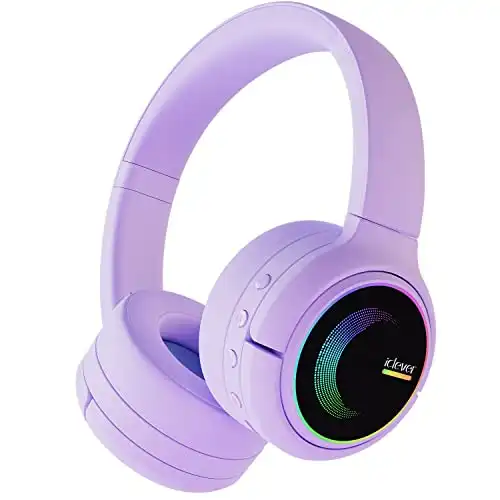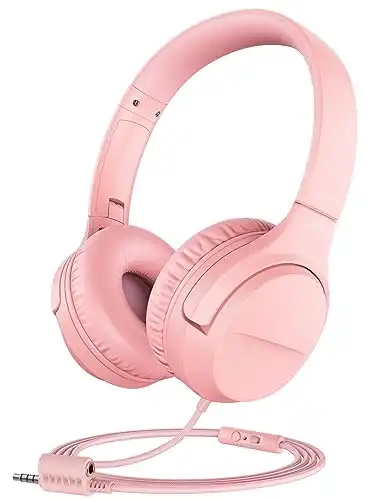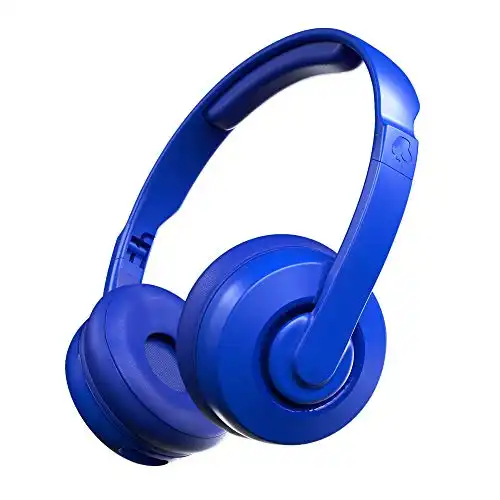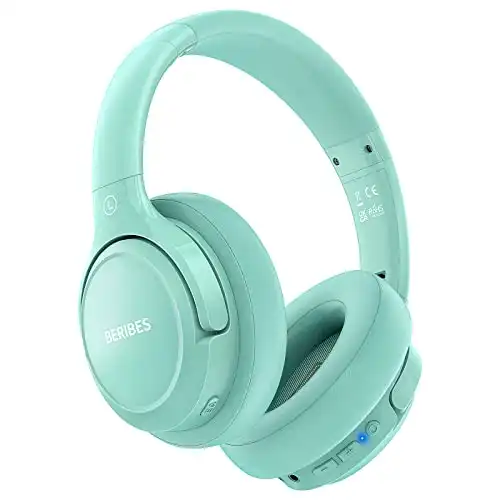
Introduction:
In today’s digital age, headphones have become an integral part of a child’s life, whether for listening to music, watching videos, or playing games. However, prolonged exposure to loud volumes can pose risks to their delicate ears. That’s why finding the right pair of headphones for your kids is essential. In this guide, we’ll answer frequently asked questions about the best wireless and wired headphones for kids, ensuring they enjoy their audio experiences safely.
1. Are Wireless or Wired Headphones Better for Kids?
Both wireless and wired headphones have their pros and cons. Wired headphones typically offer a more reliable connection and don’t require charging, making them suitable for long car rides or flights. On the other hand, wireless headphones provide more freedom of movement and eliminate the risk of tangled cords, which can be particularly beneficial for active kids.
2. What are Volume-Limited Headphones?
Volume-limited headphones are designed to restrict the maximum volume level, protecting children’s ears from potential hearing damage caused by listening at excessively high volumes. These headphones typically have built-in mechanisms that cap the sound output at a safe level, usually around 85 decibels.
3. What Features Should I Look for in Kids’ Headphones?
When choosing headphones for kids, consider factors such as affordability, durability, and comfort. Look for models with adjustable headbands and cushioned ear cups to ensure a comfortable fit, especially for younger children. Additionally, opt for headphones with sturdy construction that can withstand rough handling and accidental drops.
4. How Do I Ensure a Comfortable Fit for My Child?
Ensuring a comfortable fit is crucial to prevent discomfort or irritation, particularly during extended use. Look for headphones with adjustable headbands and soft padding on the ear cups to provide a snug yet gentle fit. Encourage your child to try on the headphones before purchasing to ensure they feel comfortable wearing them for extended periods.
5. Are There Any Age Recommendations for Kids’ Headphones?
While many headphones marketed for children are designed to fit smaller heads and feature vibrant colors or playful designs, age recommendations can vary depending on the manufacturer. It’s essential to consider factors such as head size, maturity level, and individual preferences when selecting headphones for your child. Some headphones may be suitable for toddlers, while others are better suited for older children or teenagers.
6. How Can I Encourage Safe Listening Habits?
Educating your child about the importance of safe listening habits is key to promoting healthy hearing. Teach them to use headphones at a moderate volume level and take regular breaks to give their ears a rest. Set parental controls or use apps that monitor volume levels to ensure they don’t exceed recommended limits. Additionally, lead by example by practicing safe listening habits yourself.
Conclusion: Choosing the right headphones for your child involves considering factors such as volume-limiting capabilities, comfort, durability, and age appropriateness. By selecting headphones specifically designed for kids and promoting safe listening habits, you can help protect their hearing while allowing them to enjoy their favorite audio content responsibly. Keep these FAQs in mind when shopping for headphones, and prioritize your child’s hearing health for years to come.
Your Guide to Selecting the Ideal Headphones for Adults
Introduction
Headphones have become an indispensable accessory for adults in today’s tech-savvy world, whether it’s for work, leisure, or travel. However, prolonged exposure to loud volumes can lead to hearing loss and other auditory issues. Therefore, choosing the right pair of headphones is essential for ensuring a safe and enjoyable listening experience. In this guide, we’ll address some common questions about the best wireless and wired headphones for adults, helping you make an informed decision when investing in a new pair.
1. What are Noise-Canceling Headphones, and Are They Worth It?
Noise-canceling headphones use advanced technology to reduce or eliminate external sounds, allowing you to immerse yourself fully in your audio without distractions. While they tend to be pricier than standard headphones, many users find the enhanced listening experience and improved concentration well worth the investment, especially for frequent travelers or those working in noisy environments.
2. What is the Difference Between Open-Back and Closed-Back Headphones?
Open-back headphones feature perforated ear cups that allow air and sound to pass through, resulting in a more natural and spacious soundstage. They are ideal for critical listening and home use but may leak sound and offer less isolation from external noise. Closed-back headphones, on the other hand, have sealed ear cups that provide better noise isolation and are suitable for use in noisy environments or during commutes.
3. Should I Choose Wireless or Wired Headphones
The decision between wireless and wired headphones depends on your preferences and lifestyle. Wireless headphones offer greater freedom of movement and convenience, especially for active individuals or frequent travelers. However, they require battery charging and may experience interference or connectivity issues. Wired headphones provide a reliable connection and don’t require charging but may be less convenient for on-the-go use.
4. How Can I Ensure Comfortable Wear for Extended Listening Sessions?
Comfort is crucial when selecting headphones for extended listening sessions. Look for models with adjustable headbands and cushioned ear pads that distribute pressure evenly and minimize fatigue. Over-ear headphones typically offer better comfort for extended use compared to on-ear or in-ear styles. Additionally, consider the weight and clamping force of the headphones to ensure a comfortable fit without causing discomfort or soreness.
5. Are There Any Features I Should Look for in Headphones for Work or Productivity?
When using headphones for work or productivity, consider features such as a built-in microphone for hands-free calls, inline controls for easy volume adjustment and playback control, and compatibility with your devices and software applications. Additionally, prioritize headphones with a comfortable and durable design that can withstand long hours of use without causing discomfort.
6. How Can I Protect My Hearing While Using Headphones?
To protect your hearing while using headphones, practice safe listening habits such as keeping the volume at a moderate level, taking regular breaks to rest your ears, and avoiding prolonged exposure to loud noises. Invest in headphones with volume-limiting features or use apps that monitor your listening habits and alert you if you exceed recommended volume levels. Additionally, consider using noise-canceling headphones to reduce the need for high volume levels in noisy environments.
Conclusion
Choosing the right headphones for adults involves considering factors such as noise-canceling capabilities, comfort, connectivity options, and intended use. By understanding your preferences and priorities and addressing common concerns, you can select headphones that enhance your listening experience while protecting your hearing health for years to come. Keep these FAQs in mind when shopping for headphones, and enjoy your favorite audio content responsibly.




